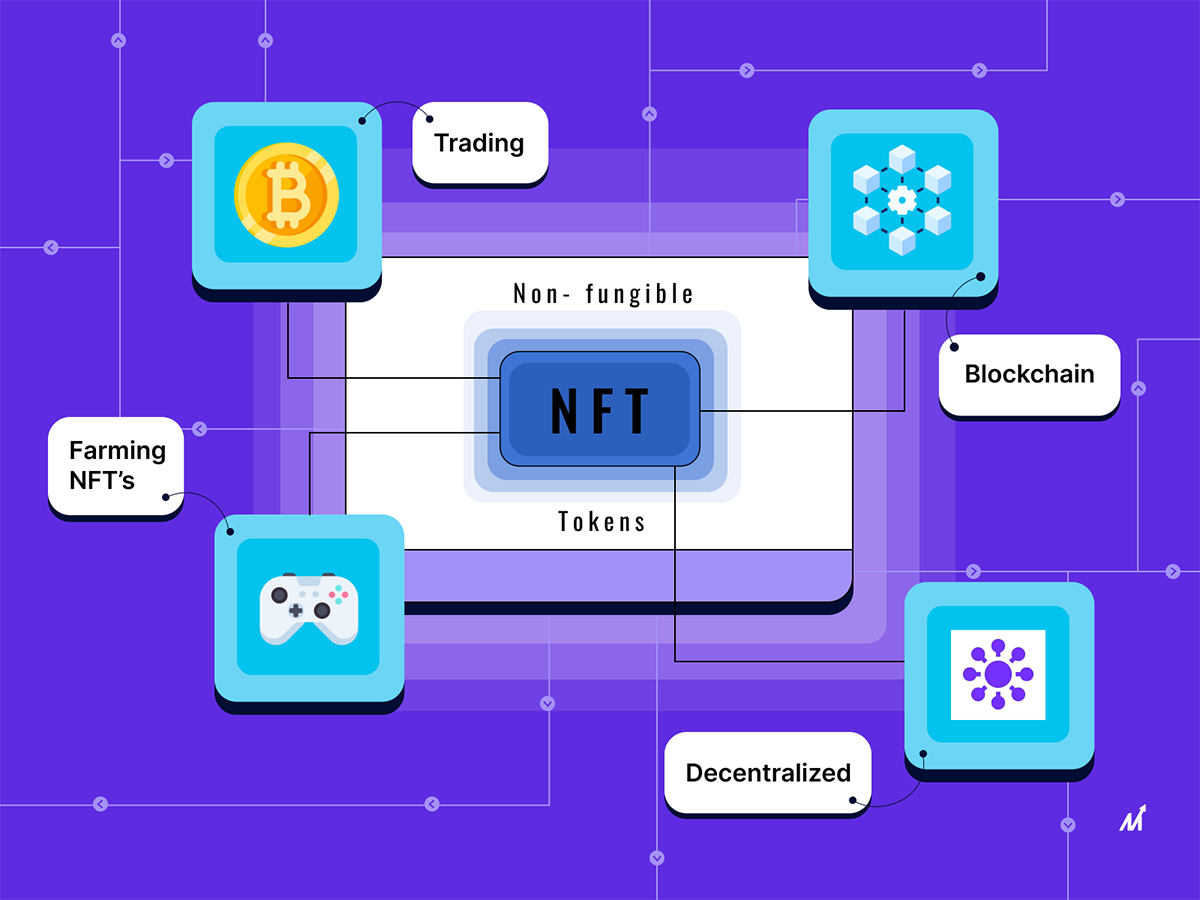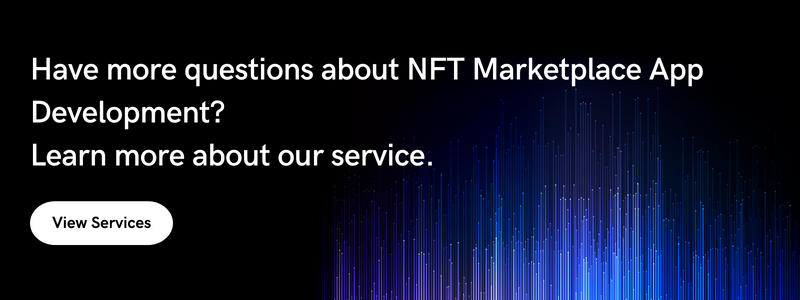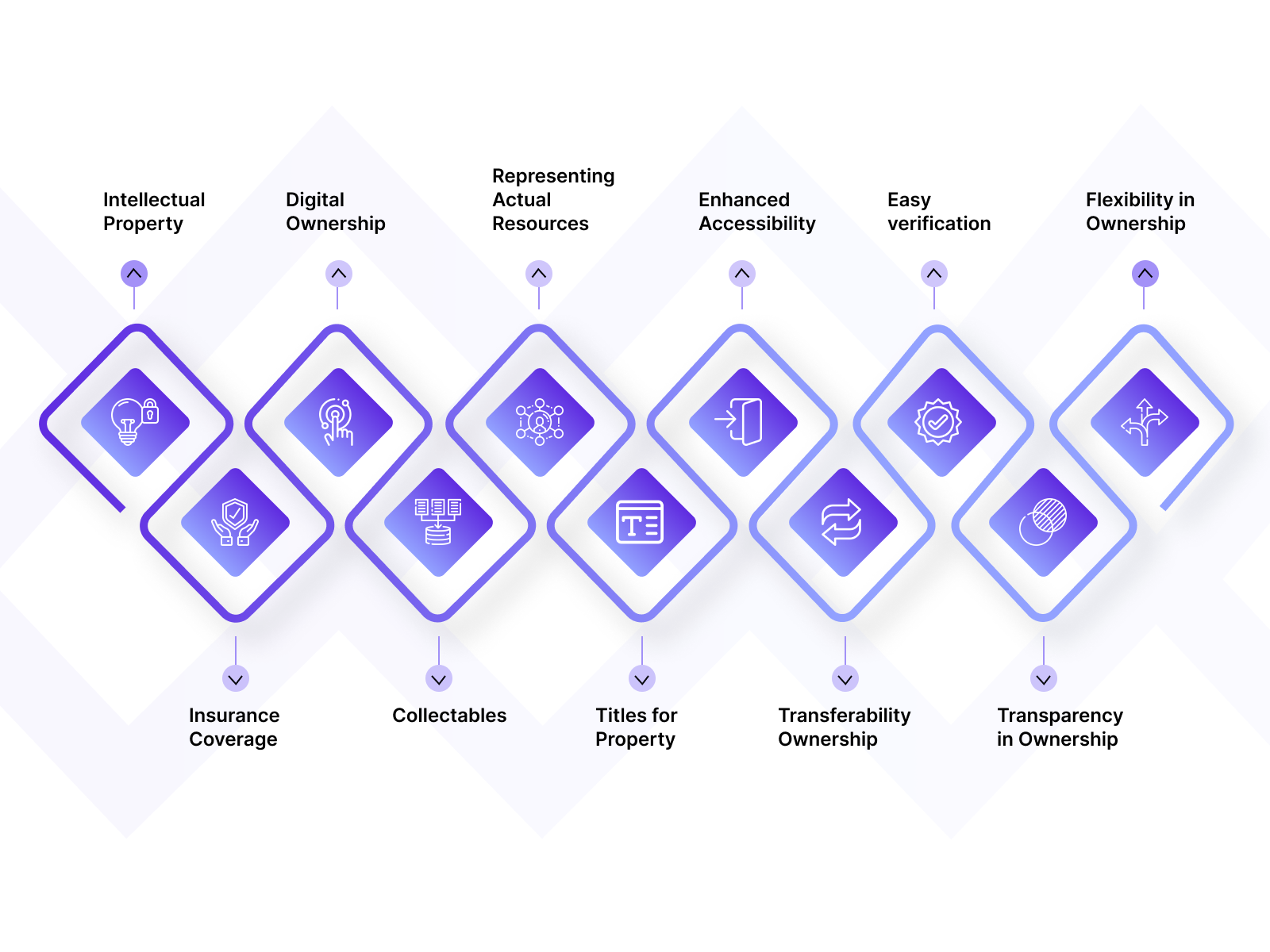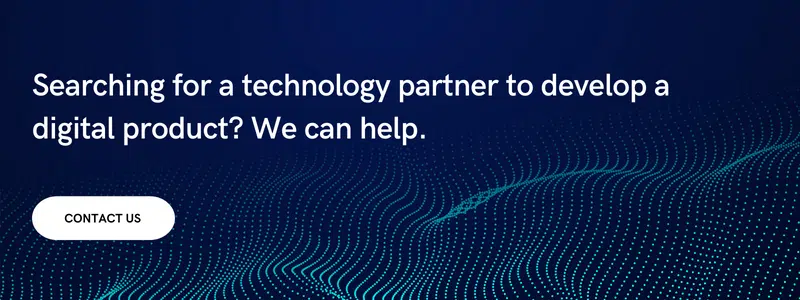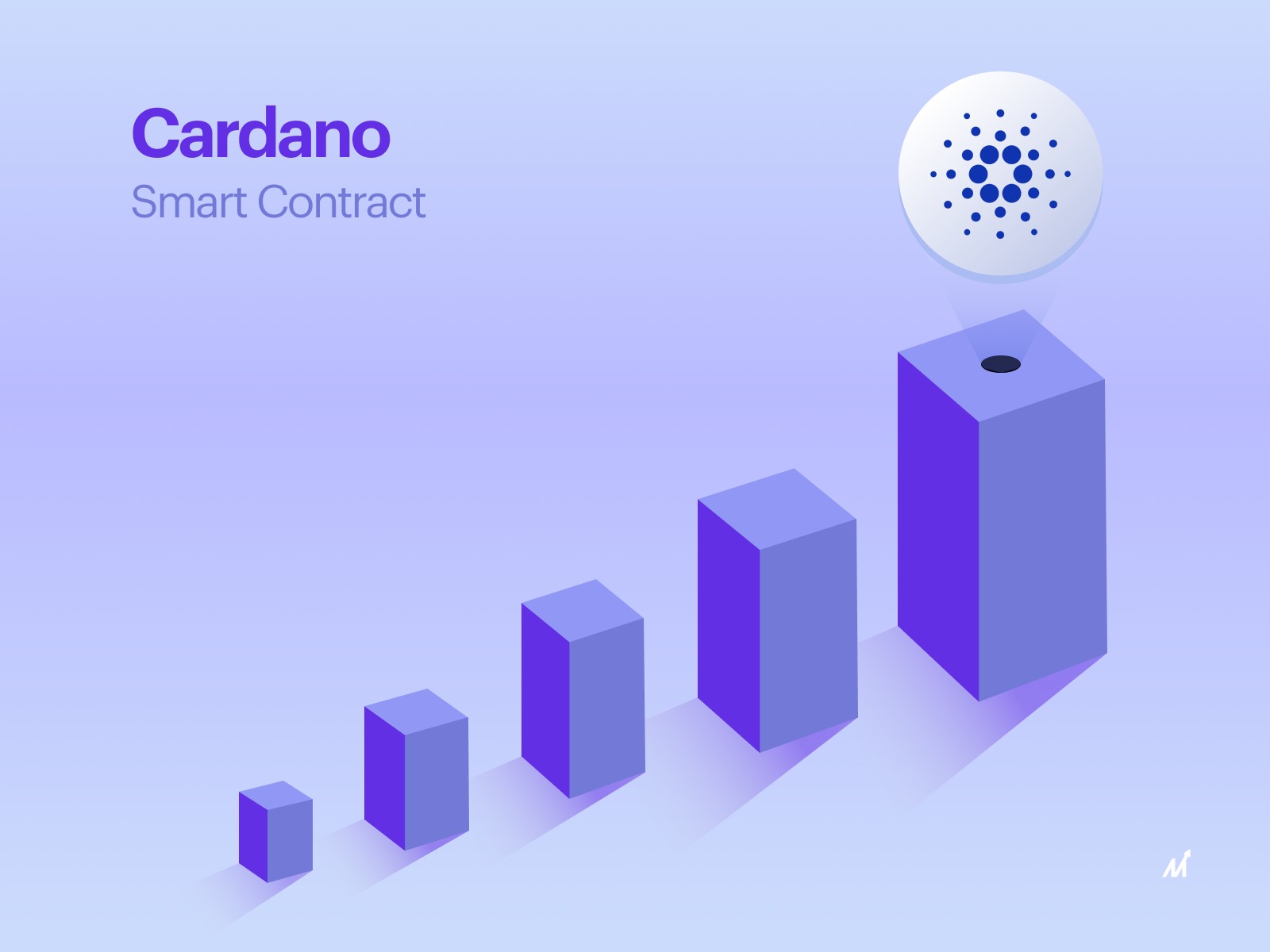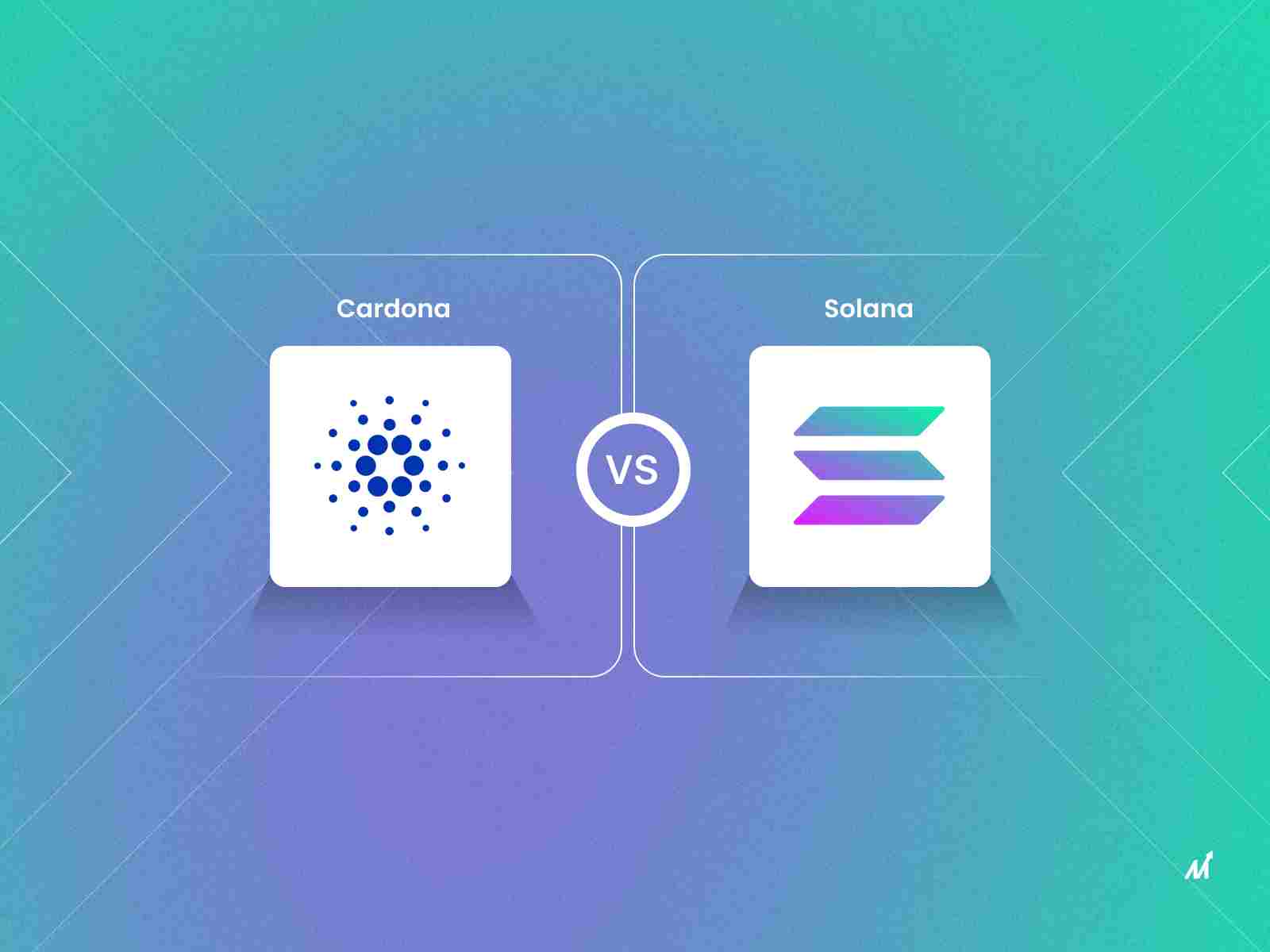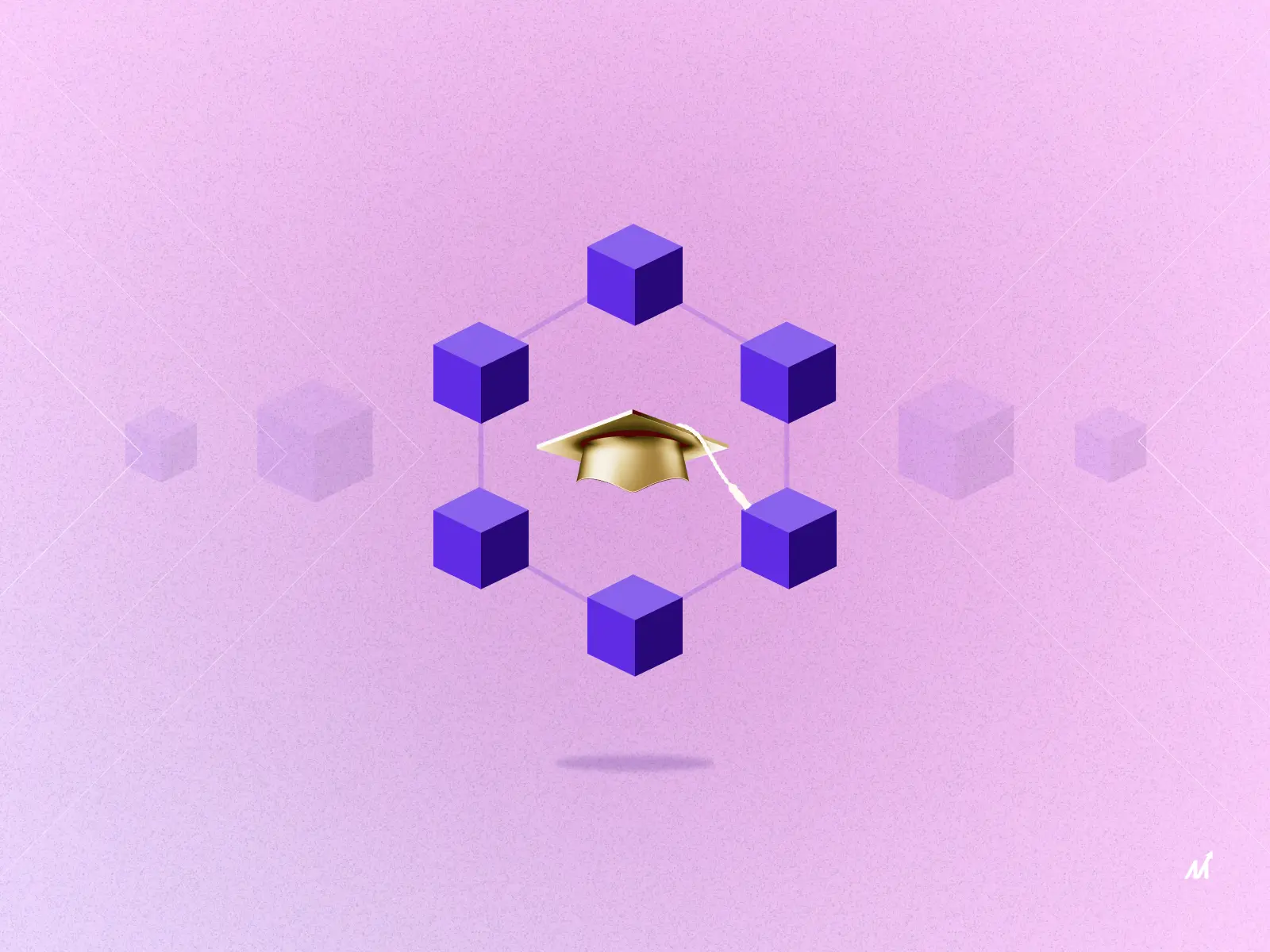NFT In Mobile Apps: Introduction
Non-Fungible Token (NFT) allows users to change their virtual cryptocurrency wallets to hold or trade digital tokens. NFT apps, where consumers can swap these digital tokens, are emerging. Markets for NFT generate enormous returns for its owners. Hence, not being aware of NFT app development is unfortunate in today’s world. NFT apps are transforming the world as we know it. Mobile game app development is one area where this influence is noticed. Through the development of NFT in mobile apps, especially NFT mobile gaming apps, NFT is gradually building a presence in the gaming sector.
NFT mobile gaming applications have a fundamental economic component that rewards players with tangible financial incentives, utterly absent in classic mobile game apps. Certain NFT mobile games even give fans a small ownership stake in the game, allowing them to vote on its future growth. It gives the people authority and is a watershed moment in the gaming industry.
Hence, in this blog post, we will talk about the various trends emerging due to NFTs.
The Changing Market Trends Of NFT In Mobile Apps
Entrepreneurs frequently look for NFT marketplace guidelines to educate themselves about the trendiest ideas before accelerating and incubating their concepts into the real world. Fortunately, this blog provides all the information customers want regarding the NFT Marketplace’s development, features, debut, and advantages. Let’s see how the statistics are changing in the NFT apps.
- Worldwide revenue in the NFT segment is projected to reach US$2.52K Million in 2022.
- The market capitalization of transactions globally involving a non-fungible token (NFT) has expanded from 140 to 340 U.S. dollars from 2018 to 2020.
- The number of unique wallets that bought or sold an NFT asset worldwide in December 2021 was 600K.
- The most expensive non-fungible token (NFT) sales worldwide, as of March 16, 2021, are valued at 69,346K U.S. Dollars.
The figures above demonstrate the popularity of the NFT market, demonstrating that the NFT app development marketplace will continue to rise. Thus, developing this concept is a decisive move. Unquestionably, NFT apps are changing the way we see the world. The development of mobile gaming applications is one noticeable area of this influence.
NFT In Mobile Apps: How Are NFTs Changing Mobile App Development?
The NFT app development process begins with a selection where you must select either white label NFT Marketplace or new development. Additionally, you must specify the blockchain network you wish to utilize and the project budget if you want to build an NFT marketplace app.
Eventually, you may communicate about the NFT Marketplace app development project with NFT Marketplace app development businesses in the USA, Australia, etc. By contacting a professional NFT marketplace app development business, entrepreneurs may create their own NFT Marketplace apps and profit from NFT trades.
A distinct mobile app development cycle is used for the NFT marketplace app. Therefore, the minimum cost for developing an NFT Marketplace app in 2022 will rely on the demands of customers and the intricate features, and hence, the total cost changes.
Investors may purchase, trade, and access NFT using the NFT apps, the mobile-friendly application.
Advantages Of NFT Development
Digital assets with non-fungible tokens have different worths. Using the NFT generator, you may produce NFTs that you can sell, swap, or trade on the blockchain. NFTs are distinguished from fungible counterparts:
1. Intellectual Property
- The ability for people to own a piece of intellectual property is the primary advantage of NFTs. When intellectual property is integrated into a blockchain, it is simpler to trace who owns it. Additionally, it is simpler to confirm that the I.P. owner is not violating the intellectual property of others.
- For instance, a fashion designer may make a clothing piece and include it in a blockchain smart contract. The original design and the designer’s ownership can then be recorded on the blockchain. The designer then has the option of selling the creation to a customer. The consumer can use the blockchain to authenticate the design and guarantee that it hasn’t been replicated.
2. Insurance Coverage
- NFTs can offer insurance for valuable items. For example, a blockchain smart contract may be integrated into a product. The smart contract may record specific product characteristics like serial numbers, model numbers, production dates, and mort. In addition, the smart contract can also record the item’s ownership and owner’s information.
- The owner can utilize the intelligent contract to demonstrate ownership and the product’s uniqueness if lost or stolen. Based on the data logged on the blockchain, the owner can then get reimbursement from an insurance provider.
3. Digital Ownership
- One of the most significant advantages of NFTs is digital ownership. There is a transparent record of who owns something and where the license is documented with digital permission. In addition, ownership can be transferred from one person to another without a third party.
- In some instances, digital ownership is safer than physical possession. An unreplicable digital key, for example, may be kept in a smart contract. A smart contract can track the owner of the key and the date that ownership changed.
4. Collectables
- It has become possible to make priceless treasures using NFTs. For instance, CryptoKitties are user-owned digital kittens with distinctive appearances. The cats are exchanged on-chain and have a market value of their own.
5. Representing Actual Resources
- Real-world assets can be represented using NFTs. For instance, a business may designate a unique asset on a blockchain to stand in for a portion of the company. The purchase may then be exchanged on the market.
- A smart contract may transfer the asset to a new owner. The asset’s ownership may be documented on the blockchain, and the value of the investment will depend on supply and demand.
6. Titles For Property
- Property titles may be recorded using NFTs. For instance, real-world qualities can be represented using tokens. The tokens may then be exchanged on a blockchain, and a smart contract can transfer ownership of the receipt.
7. Enhanced Accessibility
- NFTs can be utilized to increase ownership accessibility. Comparatively, selling an NFT is significantly simpler than selling a physical asset.
8. Transferability Of Ownership
- Users can exchange NFTs directly among themselves without the need for a mediator. This may increase the value of NFTs relative to physical assets.
9. Easy verification Of Ownership
- Compared to proving ownership of a tangible object, proving ownership of an NFT is significantly more straightforward.
10. Transparency In Ownership
- Because ownership of an NFT may be documented on a blockchain, NFTs are transparent.
- On exchanges, NFTs can be exchanged. As a result, NFTs have a higher value than tangible assets.
NFT In Mobile Apps: Key Takeaways
NFTs may be used to represent physical goods and generate digital collectibles. NFTs are significant for the following reasons:
Openness To Ownership
- NFTs can develop an open ownership structure. There is no requirement for a third party to maintain ownership, and ownership may be recorded on the blockchain.
Immutable
- NFTs are immutable because it is difficult to modify data after it has been recorded on a blockchain. As a result, ownership and transaction information is transparently recorded.
Dispersed Tracking
- Decentralized tracking systems may be made using NFTs. For example, on the blockchain, ownership can be tracked, and requests may be decentralized.
Further Read: NFT Marketplace Development: An All-In-One Guide
NFT In Mobile Apps: Frequently Asked Questions
1. What technology are NFTs built on?
The two primary technologies used to build and maintain NFTs are:
Blockchain
The uniqueness of the asset is guaranteed by the safe recording of NFTs on a blockchain, the same technology used to power cryptocurrencies. It may also be challenging to modify or counterfeit NFTs due to the technology. Understanding the economic principle of fungibility can help you know NFTs better.
Crypto
The same kind of programming that is used to develop cryptocurrencies is typically utilized to construct NFT. These cryptographic assets are built on blockchain technology, to put it simply. As a result, NFT cannot be traded or exchanged similarly to other cryptographic assets like Ethereum or Bitcoin.
2. What are some popular apps that have used NFT?
- Some of the best-known and rated NFT platforms for buying and selling digital collectibles are included in the list below. These NFT applications will offer you a range of features, making you indecisive about which ones to select.
- OpenSea
- NFT LaunchPad
- Axie Marketplace
- NBA Top Shot
- Binance
- Rarible
- SuperRare
- NFT collections reached record highs in 2022 and may rise much more in the following years. The NFT apps, as mentioned above, have made trading with NFTs more superficial for investors and developers. However, similar to how it is viewed as a safer investment, more investors are participating in this location.

